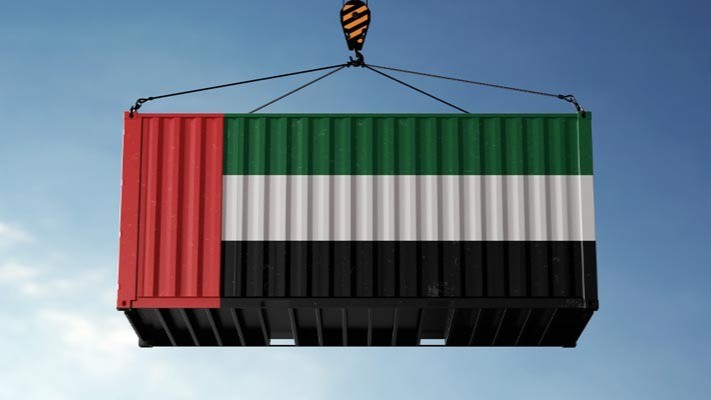Sustainability powers the future and longevity of businesses

UAE’s hosting of COP28 represents a major achievement that has allowed the nation to demonstrate its commitment of being at the forefront of the global drive towards sustainability. The UAE was the first Middle East country to sign and ratify the Paris Agreement, as well as the first in the region to announce a goal of net zero emissions by 2050. The country is ideally poised to deliver on the vision of our President HH Sheikh Mohamed bin Zayed Al Nahyan for an innovative and collaborative approach to sustainable development.
The culmination of COP28 has resulted in a landmark text known as ‘The UAE Consensus.’ This comprehensive agreement is designed to keep the global temperature rise within the critical threshold of 1.5°C. Besides this COP28 deliberations have been fruitful with eleven pledges and declarations on vital areas such as food, peace and recovery, renewable energy and de-carbonising heavy emitting industries. Also, climate finance which is a critical aspect to tackle and encourage change has mobilised $80 billion so far. The UAE also unveiled ‘Waste to Zero,’ a global initiative which is a voluntary coalition made up of governments of all levels, NGOs, and the private sector to decarbonise waste management and transform waste into resources.
Climate change, resource depletion and environmental degradation are no longer distant threats, but pressing realities that affect our businesses, communities, and the planet at large. Those within company boardrooms must also recognise the reality that sustainable business practices are not just a responsibility to society, but also a strategic imperative for long-term success.
In recent years, we have witnessed a paradigm shift in the way stakeholders perceive and engage with businesses. Consumers are increasingly making choices based on a company’s commitment to environmental and social responsibility. Investors are factoring in sustainability metrics when making decisions. Governments and regulatory bodies are focussing on environmental compliance. In this changing landscape, a focus on short-term gains at the expense of long-term sustainability is no longer a viable strategy.
The business case for sustainability is compelling. First and foremost, adopting sustainable practices mitigates risk. Climate change, resource scarcity, and social inequality are significant risk factors that can disrupt supply chains, increase costs, and damage reputation. By integrating sustainability into our strategic decision-making, we create resilient and adaptive organisations.
Furthermore, sustainability is a powerful driver of innovation. Embracing sustainable practices encourages us to rethink traditional business models, leading to the development of new products, services, and technologies. In doing so, we position our companies as leaders in the evolving market, attracting both customers and investors who value forward-thinking and responsible business practices.
The role of sustainability in attracting and retaining top talent has to be taken into consideration as well. Today’s workforce is increasingly composed of environmentally and socially conscious individuals who seek purpose and meaning in their careers. A commitment to sustainability enhances our employer brand, making us more appealing to the best and brightest minds.
The integration of sustainability into the boardroom agenda is not just about compliance; it is about shaping the future and ensuring organisational longevity. As leaders, we must ask ourselves how our businesses impact the environment, but also how we contribute to the wellbeing of the communities in which we operate and how we uphold ethical standards in our governance.
At ESAG, we have a holistic approach to corporate sustainability, consistently upholding responsible practices that safeguard both individuals and the environment. Our commitment is evident in the strides we’ve taken on our path to sustainability, notably through investments in eco-friendly infrastructure and the reduction of carbon emissions. Our ventures in a sustainable economy are also channelled through our collaboration with joint venture partners Siemens Industrial and Siemens Energy, as well as initiatives within our own Group operations.
We have actively engaged in Energy Services Company (ESCO) projects through our company TTE Engineering, empowering numerous clients to elevate and refine their operations in line with contemporary sustainability standards. This includes implementing energy-efficient solutions and process improvements that seamlessly integrate environmentally conscious measures into daily operations.

Our efforts extend to offering carbon-neutral products via our brand partners, such as Interface, which provides eco-conscious flooring for offices, and PaperOne Digital, a certified Carbon Neutral company powered entirely by renewable energy. We’ve also increased the use of steel scrap in our steel production and enhanced our facilities, ensuring one of our companies, Gulf Metal Foundry, is both energy-efficient and sustainable. Across the Group, our companies implement an electronic waste recycling programme and have significantly reduced single-use plastic water bottle usage.
Boardrooms are the engines of strategy and leadership and must openly accept that sustainability is no longer an option; it is imperative for the wellbeing of our planet, the prosperity of our businesses, and for the fulfilment of our responsibilities as leaders. By embracing sustainability and integrating it into the very fabric of our decision-making processes, we will secure the future of our organisations and contribute to building a more sustainable and equitable world for all.



